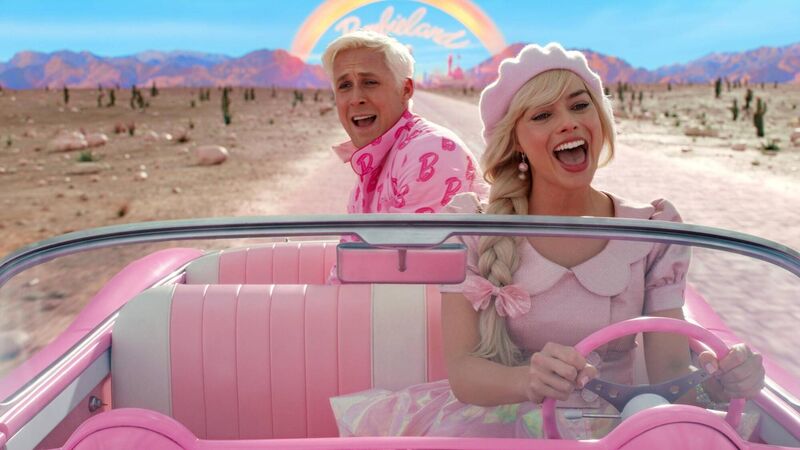Suzanne Harrington: The Barbie movie is a reclamation of a girlhood icon

Ryan Gosling as Ken and Margot Robbie as Barbie, in the latter's recent film excursion.
Try from €1.50 / week
SUBSCRIBE
Ryan Gosling as Ken and Margot Robbie as Barbie, in the latter's recent film excursion.
As the credits rolled at the end of the Barbie movie recently — because it’s definitely a movie rather than a film — two small boys leapt from their seats a few rows ahead, their excitement spilling over.
“That was better than Shrek!” one of them shouted. “Yeah!” shouted the other. “Wasn’t it Dad!” You could see a pink-bathed silhouette of the dad nodding, as the audience streamed out of the cinema, high on toffee popcorn and Barbie power.
Already a subscriber? Sign in
You have reached your article limit.
Annual €130 €80
Best value
Monthly €12€6 / month
Introductory offers for new customers. Annual billed once for first year. Renews at €130. Monthly initial discount (first 3 months) billed monthly, then €12 a month. Ts&Cs apply.
Newsletter
The best food, health, entertainment and lifestyle content from the Irish Examiner, direct to your inbox.

Our team of experts are on hand to offer advice and answer your questions here
Newsletter
The best food, health, entertainment and lifestyle content from the Irish Examiner, direct to your inbox.
© Examiner Echo Group Limited